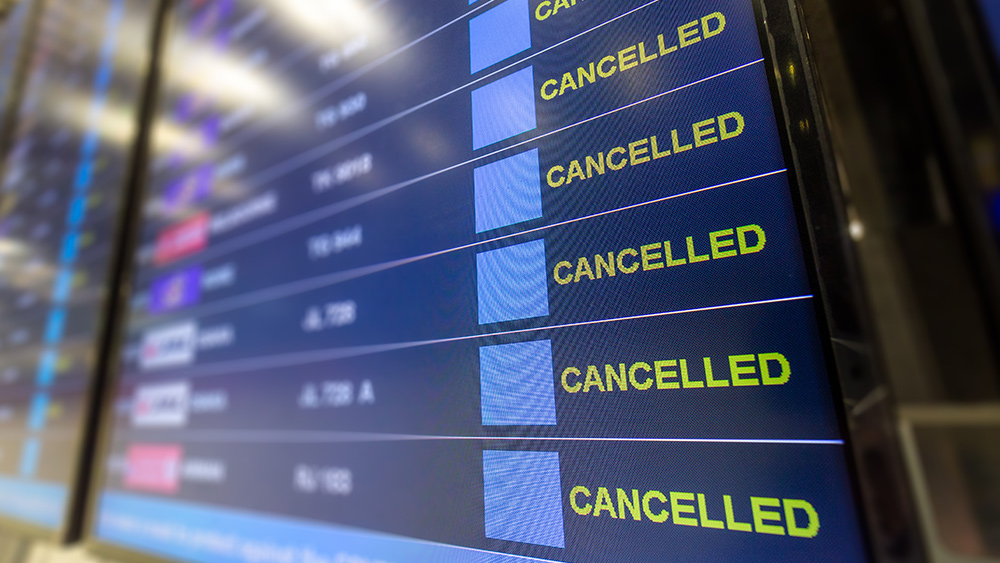UT Austin bans TikTok on campus, citing security concerns
01/20/2023 / By Ramon Tomey

The University of Texas at Austin (UT Austin) has banned the use of Chinese video app TikTok on campus networks, following security concerns brought up by state and federal officials.
UT Austin announced in Jan. 17 that it is permanently blocking TikTok’s access on its systems. Devices connected to the campus network via Wi-Fi or wired connections will be prohibited from accessing the app. The move was in line with an order by Texas Gov. Greg Abbott banning all state employees and officers from downloading or using TikTok on government-issued devices.
“The university is taking these important steps to eliminate risks to information contained in the university’s network, and to our critical infrastructure,” wrote Jeff Nyland, adviser to the UT president for technology strategy.
“As outlined in the governor’s directive, TikTok harvests vast amounts of data from its user’s devices – including when, where and how they conduct internet activity – and offers this trove of potentially sensitive information to the Chinese government.”
Nyland wrote that “legitimate uses of TikTok to support university functions … will be considered.” However, an exemption must first be requested through UT’s Information Security Office. The said exemption must ultimately be reviewed and approved by the university president, university chancellor and the governor’s office.
Once approved, any exemptions will require TikTok to be accessed on “an isolated, single-purpose university-issued device not connected to the university’s Wi-Fi or wired network.”
UT Austin is not the only higher education institution that banned TikTok.
In December 2022, the University of Oklahoma announced it would ban internet access to TikTok. This followed an executive order by Oklahoma Gov. Kevin Stitt banning government networks and devices from accessing the video-sharing app.
Boise State University also blocked access to TikTok on its networks following an order from Idaho Gov. Brad Little. It said students who want to access the app may do so using their own mobile data plan. Auburn University also blocked the app on its network after a similar edict by Alabama Gov. Kay Ivey. (Related: Alabama, Utah ban TikTok on state-owned devices over security concerns.)
TikTok now banned in several states
State and federal officials are concerned about whether the Chinese government can access data from American users through TikTok. At least 25 states have announced prohibitions on TikTok, citing national security concerns.
In December 2022, Utah Gov. Spencer Cox announced a ban on TikTok. His edict ordered that state employees may not download the app, access it or visit any TikTok website on state-owned devices. Cox’s order applies to all agencies under the executive branch in the Beehive State.
“China’s access to data collected by TikTok presents a threat to our cybersecurity,” thbige governor said in a statement. “As a result, we’ve deleted our TikTok account and ordered the same on all state-owned devices. We must protect Utahns and make sure that the people of Utah can trust the state’s security systems.”
In late November 2022, South Dakota Gov. Kristi Noem announced a ban on TikTok on state-owned devices through an executive order that immediately took effect.
“South Dakota will have no part in the intelligence-gathering operations of nations who hate us,” she said in a press release. “The Chinese Communist Party uses information that it gathers on TikTok to manipulate the American people, and they gather data off the devices that access the platform.”
Watch this G News report about Maryland Gov. Larry Hogan banning TikTok on state devices.
This video is from the Chinese taking down EVIL CCP channel on Brighteon.com.
More related stories:
US lawmakers unveil bipartisan bill to ban TikTok.
Indiana sues Tiktok over consumer data access and sexual content.
Taiwan bans TikTok from government devices, mulls nationwide prohibition.
Sources include:
Submit a correction >>
Tagged Under:
banned, big government, Big Tech, CCP, China, data collection, government devices, Greg Abbott, Kristi Noem, national security, privacy watch, public schools, South Dakota, Spencer Cox, surveillance, Texas, TikTok, UT Austin, Utah
This article may contain statements that reflect the opinion of the author
RECENT NEWS & ARTICLES
COPYRIGHT © 2017 COMPUTING NEWS

















